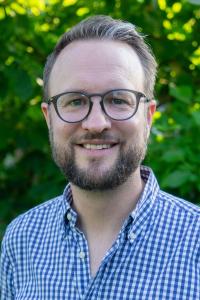Expert panel
Details
Initiated by the Konrad-Adenauer-Stiftung (KAS) in 2014, the annual South Sudan conference series aims to facilitate a platform for sharing perspectives on possibilities and options for long-term peace and inclusive development in the world’s newest state. The discourses bring together leading experts on peace, conflict, state formation and South Sudan who explore salient issues underpinning the country’s history of conflict and underdevelopment. As KAS considers options for a more structured engagement in supporting the process of political formation the upcoming conference will be a significant contributor of ideas regarding how international actors can meaningfully support peace and development efforts in South Sudan.
In August 2015 following protracted negotiations, a peace deal between the two protagonists, President, Salva Kiir and his main challenger, Reik Machar was concluded. While this accord has achieved the much desired outcome of the ‘silence of the guns’, and an anticipated withdrawal of foreign forces from the country, the possibility of sustaining the peace remains a matter of speculation.
As to whether the current peace agreement will not suffer the fate of previous ceasefires remains a major concern for the South Sudanese as well as the international community.
The state formation process in South Sudan was an inherently violent one and independence was only achieved after close to three decades of civil war. Moreover, neither the 2005 Comprehensive Peace Agreement (CPA) nor the eventual independence in 2010 addressed deep rooted drivers of conflict to the extent that South Sudan is largely seen as caught in what Paul Coullier calls a ‘conflict trap.’
Therefore, considering that deep background factors have not been comprehensively addressed within the current peace deal, the possibility of sustaining a fragile peace remains a matter of utmost concern. But what exactly are the risk factors that may potentially trigger a relapse to violence and how can they be mitigated? What are the possibilities for supporting good governance and inclusive development as a panacea to long-term peace and stability in the world’s newest state? These questions set the centerpiece for dialogue in the upcoming KAS conference. A team of carefully selected experts will reflect on these issues with a view of engendering interventions that increase the promise for sustainable peace and development.
The 2015 conference follows the first one held in November 2014 during which the structural drivers to conflict such as elite competition within and outside the SPLM, ethnic fragmentation, and resource related factors were explored. This year’s conference draws on the promise of the August 2015 peace accord agreed between the South Sudan government and the rebel faction. It seeks to examine possibilities for sustaining peace, the risk factors and potential triggers of a possible relapse to violence as well as the options for supporting good governance and development, including the roles international stakeholders can play.



